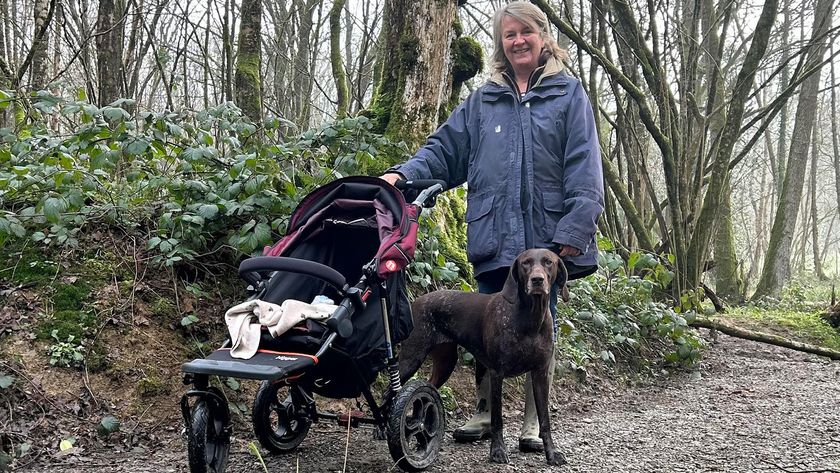Can dogs understand humans? Better than any other animal, according to scientists
The question 'Can dogs understand humans?’ has long intrigued researchers and now a new study finally has the answer

Can dogs understand humans? If new research is anything to go by, you better believe it! In fact, not only are our canine companions able to understand us, they do it better than any other animal on the planet.
In a study that compared dog’s with their closest relative, the wolf pup, scientists at Duke University were able to prove their hypothesis that somewhere in our evolutionary past, dogs and humans became linked in a way that enables our canine companions to understand us on a level other animals can’t.
The authors compared 37 wolf pups who had been abandoned by their mothers and raised by humans and 44 service puppies in training who had less human interaction and discovered that dogs outperform their wolf counterparts, both when it comes to understanding humans and cooperating with them.
In one task, researchers placed two bowls in front of each wolf puppy and dog puppy and placed a treat in one of the bowls. They then pointed three times at the bowl containing the treat.
The dog puppies were twice as likely as the wolf puppies to understand which bowl they needed to go to, even though the dog puppies had previously had less exposure to humans than the wolf puppies.
In a separate test, the researchers found that the dog puppies were 30 times more likely to approach an unknown human and make eye contact than the wolf puppies.
- How much does your dog love you? Not enough to feed you, a new study reveals
- Acupuncture for dogs with chronic illness could improve their quality of life
- Why grumpy dogs are cleverer than cheerful canines
“This study really solidifies the evidence that the social genius of dogs is a product of domestication,” says Dr. Brian Hare, one of the authors of the study.
PetsRadar Newsletter
Get the best advice, tips and top tech for your beloved Pets
While Chimpanzees have often been considered the smartest members of the animal kingdom, the team found that much like human infants, puppies understand what a human is doing when they point at something and what is expected of them in a way that wolf puppies, and other animals, don’t.
“We think it indicates a really important element of social cognition, which is that others are trying to help you. Chimpanzees can run circles around dogs on so many things,” says Hare, “But they’re not particularly good at understanding cooperative communicative gestures.”
Doctoral student Hannah Solomon, who was involved with the study, is quick to point out that this isn’t about intelligence but evolution. When it came to memory and motor impulse control, the dog puppies and wolf puppies proved equally competent, it was only in their people reading skills where the differences became clear.
“There’s lots of different ways to be smart,” Salomons explains. “Animals evolve cognition in a way that will help them succeed in whatever environment they’re living in.”

Kathryn is a freelance writer who has been a member of the PetsRadar family since it launched in 2020. Highly experienced in her field, she's driven by a desire to provide pet parents with accurate, timely, and informative content that enables them to provide their fur friends with everything they need to thrive. Kathryn works closely with vets and trainers to ensure all articles offer the most up-to-date information across a range of pet-related fields, from insights into health and behavior issues to tips on products and training. When she’s not busy crafting the perfect sentence for her features, buying guides and news pieces, she can be found hanging out with her family (which includes one super sassy cat), drinking copious amounts of Jasmine tea and reading all the books.












